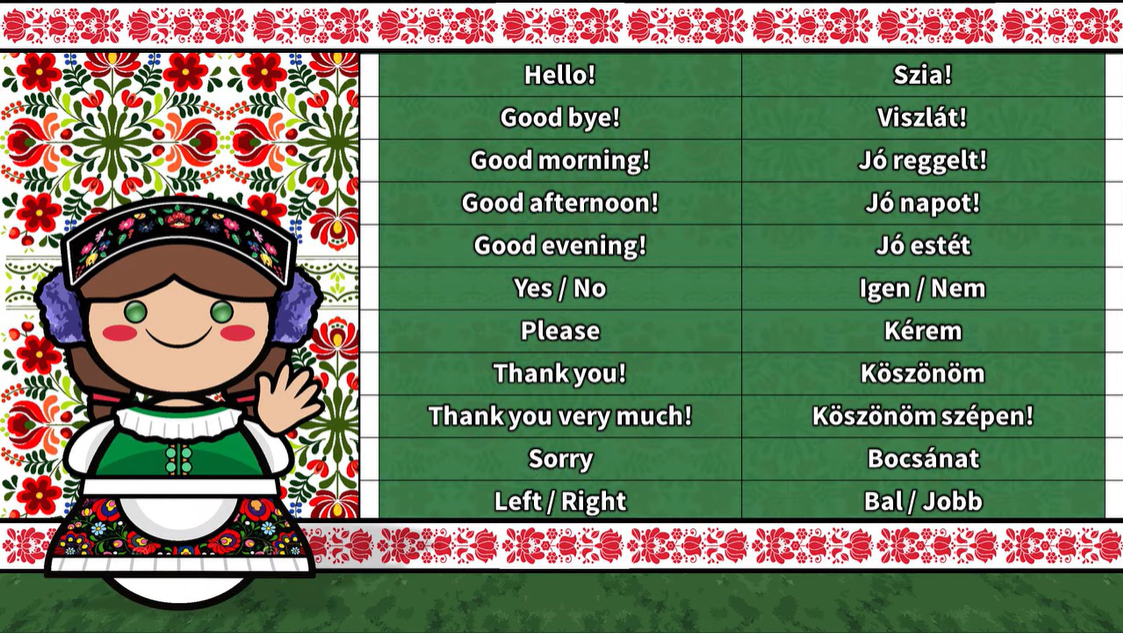The sounds of the Hungarian language – Video
The saying “it is music to my ears” can easily be applied to languages as well. Your first association might be a somewhat more melodious language, but we hope that our lovely agglutinating Hungarian can also be music to your ears 😉
If you would like to support the work of the Daily News Hungary staff and independent journalism,
please make a donation here
please make a donation here
Hot news
Isten hozott! – Pope Francis greets Hungarian people in Hungarian
Chaos at Budapest Airport: Slip road to be closed from Saturday
Fuel prices in Hungary: Retailers asked to align prices with regional average
Fidesz content with EP’s Western Balkans Growth Plan
Hungarian FM Szijjártó talks about ‘pro-war camp’ in Beijing
Tourists beware: popular Budapest taxi company defrauded customers?



1 Comment
Hungarian, contrary to some remarks made by people, is not a terribly difficult language to learn. It follows rules, it has a phonetic alphabet, unlike English, where the sounds and the spelling don’t necessarily match. The rules are standard, save for some exceptions which are defined and identified by Hungarian grammar. The agglutination of the language, incorporating suffixes and prefixes into a word, denote possessive and past tense and show who the speaker is, and the tense, makes the language very flexible with almost endlessly shaded meanings. The conciseness and clarity gives it a profound impact, and prevarication and obfuscation is harder in Hungarian. The pronunciation is different, but diacritical marks such as acute and other accent marks on vowels, as well as a set of double consonants that always produce the same sound, can be mastered with practice. It is the fact that Hungarian does not have familiar words, such as those shared by English, French, and German, makes the language seem unapproachable. Then those that write about it, such as Pal Lendvai’s history of Hungary, which tells of an isolated people due to a language that is nigh impossible to learn, are mistaken in their judgment. Hungarians, for instance, always put a premium on making literary and other works translated into Hungarian, whereas some English speaking countries are far behind in such efforts. Isolation in the middle of Central Europe was not really possible, to begin with, and then, for centuries, Latin was the common language of learned and cultured Europe. All languages are valuable, and all are open to being learned. There is a whole world of languages that are not defined from Latin influence.